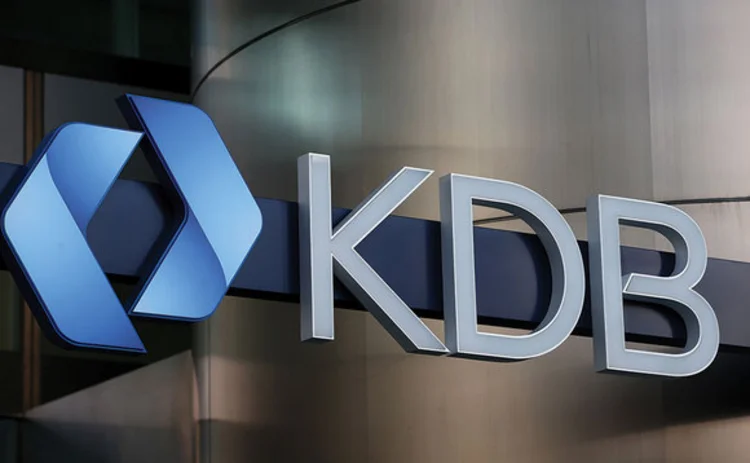
House of the Year, South Korea: Korea Development Bank
Asia Risk Awards 2016

The dominance of Korea Development Bank (KDB) in the South Korean derivatives market has seen the bank gain market share over the past 12 months, rising to the top position in outstanding derivatives volumes. At the end of the first quarter of 2016, the bank held 7.2% of total domestic market share with $417 billion outstanding, up from $405 billion or third overall at the end of 2015.
With bond yields under significant pressure, the bank has offered a number of solutions to help clients gain additional yield pick-up through various structures including callable zero-coupon swaps, callable average constant maturity spread swaps and callable average constant maturity spread zero-coupon swaps. From July 2015 to June 2016, the bank issued 84 structured bonds with a notional value of around $29 billion.
The most popular structure was a callable zero-coupon bond which allowed investors to gain additional yield while decreasing funding costs for the bank. For example, the bank issued a 15-year bond with a callable option that may be exercised every year. Investors were typically insurance companies or pension funds and the bond tenor ranged from 15 to 20 years.
"This appealed to investors looking for a pick-up over traditional bonds. The investor sells the option to KDB in exchange for a higher return. The call feature gives KDB a stop-loss option when interest rates are lowered while the credit rating of KDB-issued bonds also makes it attractive to investors," says Eunhwan Kim, an options trader with KDB.
Volumes of structured bonds sold by the bank grew by nearly three times in 2015 from 2014 and are set to reach another record high in 2016, adds Kim.
Sangyoon Choi, a senior manager in the foreign exchange and derivatives department at KDB, says the bank has seen increased demand for derivative-based solutions from domestic financial institutions such as commercial banks, securities firms and investment trust managers.
"Some of these firms have limited experience in product structuring so our solutions proved to be an effective means to satisfy this demand," says Choi. The bank's derivative sales teams have achieved a 51% increase in sales compared with the corresponding period last year.
In order to attract new business, KDB also implemented a new marketing strategy by offering currency and other risk management consulting services to corporate clients. This proved timely, as the Korean won depreciated by around 10% against the US dollar over the last 12 months.
One example of the bank's structuring expertise was a $30 million cross-currency swap for a Korean shipping company designed to lower borrowing costs. The firm had previously issued Kimchi bonds – US dollar-denominated bonds issued in Korea – and needed US dollars to repay the bonds that were maturing. As the shipping industry has declined significantly, the company was unable to borrow directly from domestic banks due to its credit position.
KDB designed a special-purpose vehicle (asset-backed commercial paper) backed by the Kimchi bonds to allow the company to borrow in Korean won with the proceeds then swapped into US dollars via a cross-currency swap to refinance the bonds that had been previously issued.
"We achieved two goals at once: reducing the borrowing cost for the client, and for KDB, earning more than just a normal loan," says Eusok Seoul, a sales manager with the forex and derivatives department at KDB.
Seoul also cites a similar transaction where a Korean manufacturer had a subsidiary located abroad that needed US dollar funding.
"They need dollars to finance their operations but the subsidiary was not rated and could not borrow in dollars. So the parent issued Korean bonds domestically and entered into a cross-currency swap with the bank to change won into US dollars," says Seoul.
Another example of the bank's ability to meet client needs was an interest rate swap to hedge interest rate risk as part of a $50 million aircraft financing deal.
"The client was an Asian airline that used a special-purpose company to borrow at Libor plus 2% to finance the purchase of the two planes. We proposed an interest rate swap to change the floating rate to a fixed rate over the tenor of the loan, thereby helping the client to hedge their interest rate risk," says Seoul.
KDB has also been at the forefront of the development of the Korean won/Chinese yuan market. The bank was named as a market-maker for the direct trading of the won/yuan market in Seoul on December 2014 and has gained a 10% market share of traded volumes at the end of June 2016. KDB was also named as a market-maker for direct trading of won/yuan in Shanghai which commenced in June this year.
Only users who have a paid subscription or are part of a corporate subscription are able to print or copy content.
To access these options, along with all other subscription benefits, please contact info@risk.net or view our subscription options here: http://subscriptions.risk.net/subscribe
You are currently unable to print this content. Please contact info@risk.net to find out more.
You are currently unable to copy this content. Please contact info@risk.net to find out more.
Copyright Infopro Digital Limited. All rights reserved.
As outlined in our terms and conditions, https://www.infopro-digital.com/terms-and-conditions/subscriptions/ (point 2.4), printing is limited to a single copy.
If you would like to purchase additional rights please email info@risk.net
Copyright Infopro Digital Limited. All rights reserved.
You may share this content using our article tools. As outlined in our terms and conditions, https://www.infopro-digital.com/terms-and-conditions/subscriptions/ (clause 2.4), an Authorised User may only make one copy of the materials for their own personal use. You must also comply with the restrictions in clause 2.5.
If you would like to purchase additional rights please email info@risk.net
More on Awards
Best user interface innovation: J.P. Morgan
J.P. Morgan wins Best user interface innovation thanks to its Beta One portfolio solution
Market liquidity risk product of the year: Bloomberg
Bringing clarity and defensibility to liquidity risk in a fragmented fixed income market
FRTB (SA) product of the year: Bloomberg
A globally consistent and reliable regulatory standardised approach for FRTB
Best use of cloud: ActiveViam
Redefining high-performance risk analytics in the cloud
Best use of machine learning/AI: ActiveViam
Bringing machine intelligence to real-time risk analytics
Collateral management and optimisation product of the year: CloudMargin
Delivering the modern blueprint for enterprise collateral resilience
Flow market-maker of the year: Citadel Securities
Risk Awards 2026: No financing; no long-dated swaps? “No distractions,” says Esposito
Pricing and analytics: fixed income – Quantifi
Quantifi delivers high-performance, transparent and adaptable pricing and risk analytics for fixed income and credit markets







